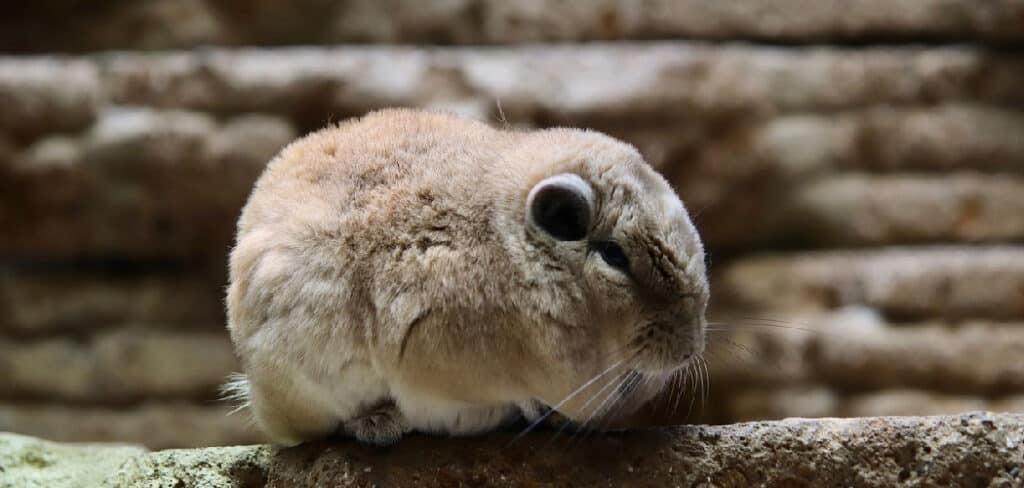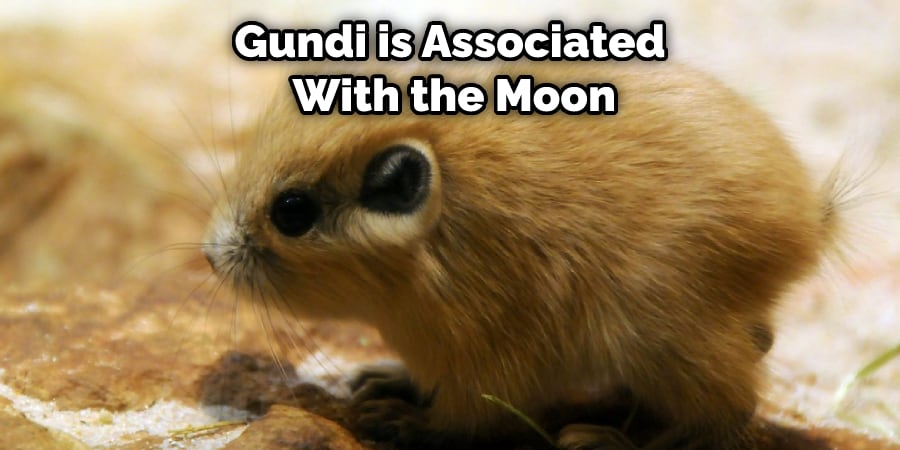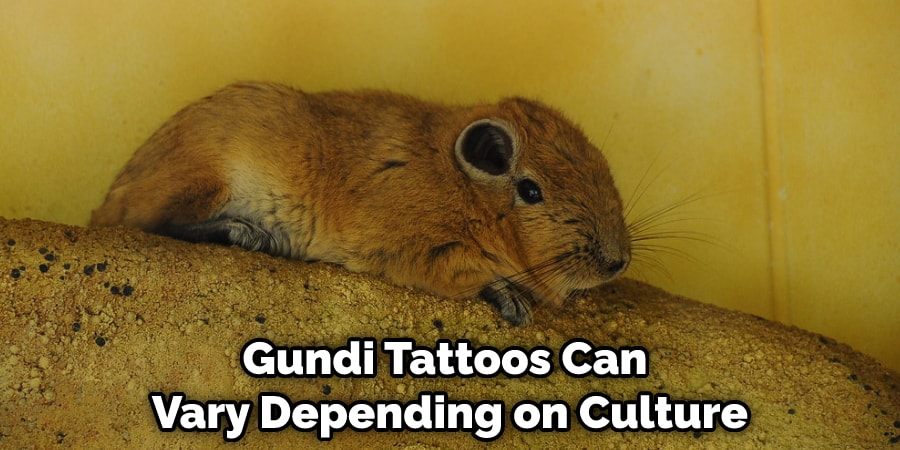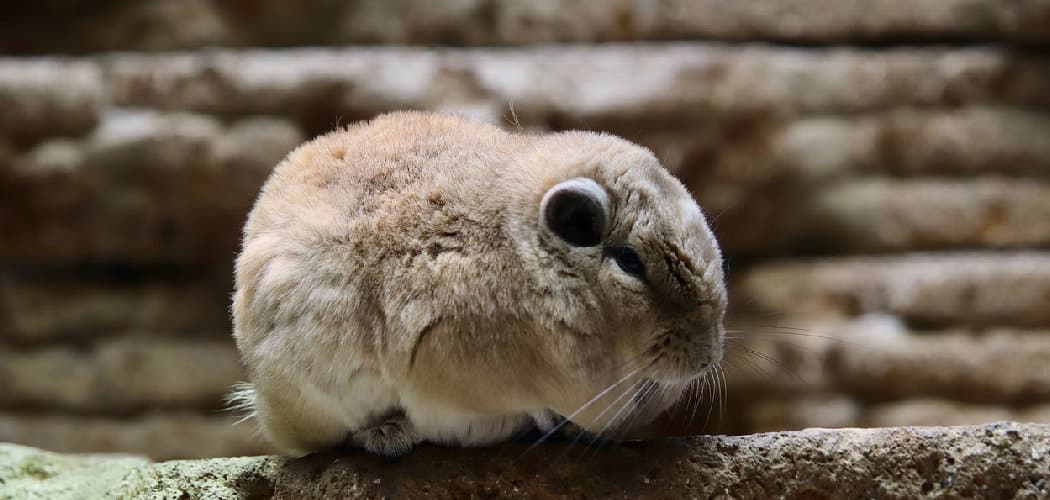When it comes to spiritual meanings, gundis hold a special place. These small creatures are thought to be messengers between the physical and spiritual worlds and are often considered harbingers of good news. If you see a gundi, it is said to be a sign that good things are on the way.

Gundis are also believed to be powerful healers, and many people seek their help when they are in need of healing or guidance. In addition to their spiritual significance, gundis are also beloved for their adorable appearances. So keep reading to learn more about the gundi spiritual meaning.
Gundi Symbolism and Meaning
Gundi Native American Symbolism
Gundi is a Native American symbol that represents strength, power, and protectiveness. The eagle is often associated with Gundi, as it is a powerful creature that is known for its ability to soar high above the earth. Gundi can also be seen as a symbol of motherhood, as the eagle is known for its fierce loyalty to its young.
In some cultures, Gundi is associated with the moon, as the eagle is often seen as a night creature. However, no matter what culture you come from, Gundi is a powerful symbol that represents many positive things.
Gundi Eastern Symbolism
The Gundi is an eastern symbol that has been around for centuries. It is said to represent the three aspects of the human soul: the mind, the body, and the spirit.

The Gundi is also a symbol of balance and harmony. In addition, it is often used as a symbol of protection, as it is believed to ward off evil spirits. In some cultures, the Gundi is also seen as a symbol of fertility.
This is because the shape of the Gundi resembles a pregnant woman’s belly. As such, it is seen as a good luck charm for couples who are trying to conceive. Whether you see the Gundi as a symbol of balance, protection, or fertility, there is no denying that it is a powerful and deeply meaningful icon.
Gundi Christianity Symbolism
Christianity is a monotheistic religion that is based on the life and teachings of Jesus Christ. Gundi is a popular symbol in Christian art and culture, representing both Christ himself and the Christian faith. Gundis are often depicted as holding a lamb, which symbolizes Christ’s sacrifice, or as standing on a globe, representing the universality of the Christian message.
In addition, gundis are often used to decorate churches and other religious buildings. This is because they are seen as symbols of hope, peace, and love. Christians believe that by following the examples set by Jesus Christ, they can achieve salvation and eternal life. As such, gundis serve as a reminder of the core tenets of the Christian faith.

Gundi Celtic Symbolism
Gundi is a Celtic symbol that represents the sun, fire, and fertility. It is often associated with the goddess Brigid, who is known for her healing and smithcraft abilities. Gundis are also said to represent abundance, courage, and strength.
In Celtic mythology, Gundis are often depicted as powerful animals such as boars or bulls. They are also associated with the color red, which symbolizes passion and heat. Gundis are often used in Celtic art and jewelry as a way to connect with the energy of the sun and the power of fire.
Gundi African Symbolism
Gundi is a Celtic symbol that is often seen in African art. The Gundi represents protection and strength and is often used as a protective charm. It is also a symbol of fertility and is associated with the goddesses of love and fertility. In some cultures, the Gundi is also seen as a guardian of the home and is believed to keep evil spirits away.
The Gundi is also a popular tattoo design and is often seen as a representation of Africa itself. Symbolically, the Gundi represents all that is good in Africa and is a reminder of the continent’s rich history and culture.
Gundi Spiritual Meaning
Gundis are small, four-legged creatures that live in the forests of the Gundi realm. They are gentle and timid by nature but also known for their great strength and endurance. Gundis are amazing hikers who often travel for days or even weeks at a time without stopping.
It is said that their feet are so tough that they can walk on hot coals without being burned. Gundis are also excellent swimmers and have been known to cross entire rivers in a single day.

The Gundi people believe that the spirits of the forest bless these creatures, and they often refer to them as “the little brothers of the trees.” Gundis are considered to be good luck symbols, and it is said that if you help one when it is in need, the forest spirits will bless you in return.
The Gundi population has declined sharply in recent years due to deforestation and other environmental threats. However, there is still a small group of dedicated conservationists who are working to protect these creatures and their habitats.
Gundi in Dreams
Gundis are imaginary creatures that live in the Dreamtime. They are said to be able to take on any form they choose and use their powers to help humans achieve their goals. Gundis are also said to be very wise, and they often share their knowledge with humans through their dreams.
Some people believe that Gundis are real creatures living in another dimension. Whatever the case may be, it is clear that Gundis have a special place in the world of dreams.
Gundi Encounters and Omens
Gundi encounters were once considered to be a bad omen. It was said that if a Gundi crossed your path, it was an indication that you would soon meet with misfortune. This belief probably arose because Gundis are often associated with death and destruction. In reality, however, Gundis are actually quite harmless creatures.
They are small, rodent-like animals that are found in parts of Africa and Asia. While they occasionally feed on carrion, they are mostly scavengers and do not threaten humans. In recent years, the belief that Gundi encounters are unlucky has begun to fade, and now these creatures are more likely to be seen as cute and harmless.
Gundi’s Meaning in Mythology and Folklore
Gundi is a creature with both human and animal features that appears in Germanic mythology and folklore. In some stories, Gundis are said to be helpful creatures that protect livestock and children from harm. In other tales, they are malicious beings that abduct humans and take them to their underground homes.
Gundis are usually described as being covered in fur, with long claws and sharp teeth. They may also have horns or wings. While the creature’s exact appearance varies from story to story, its ability to both terrify and fascinate has remained constant throughout the centuries. The word “Gundi” is thought to be derived from the Old Norse word for “monster.”
This suggests that the creature was originally seen as a threat to humanity rather than a helpful ally. Over time, however, Gundi’s image has softened, and it is now often seen as a benevolent figure.
Whether helpful or harmful, the Gundi continues to capture the imagination, and its meaning remains as elusive as its form. Moreover, this enigmatic creature seems to continue to haunt our collective unconscious for many years to come.
Gundi Totem Animal
Gundis are small, rodent-like animals that are found throughout Central and South America. These creatures are noted for their long tails and furry bodies, and they are often considered to be pests by farmers and homeowners.
However, in some cultures, the gundi is considered to be a sacred animal. For example, the Gundi people of Africa believe that these animals are the totem animals of their clan, and they often use them in religious ceremonies. In addition, gundis are thought to bring good luck and protect against evil spirits.
As a result, they are sometimes kept as pets by people who subscribe to these beliefs. Whether you consider them to be pests or belief beings, there is no denying that gundis play an important role in the cultures of Central and South America.
Gundi Tattoo Meaning
Gundi is a small, spiny rodent indigenous to parts of Africa and Asia. In some cultures, the Gundi is considered a pest, but in others, it is respected as a symbol of good luck and fertility. In many cultures, the Gundi is also associated with body art, as the animals are commonly used as tattoo designs.
There are several reasons why the Gundi is often chosen as a tattoo design. For one, the animal is seen as a representation of good fortune. In some cultures, the Gundi is believed to bring luck to those who wear its image.
The tattoos are also said to ward off bad luck and illness. Additionally, the Gundi is often associated with fertility. In many cultures, the animal is seen as a symbol of new life and growth. As such, it is not uncommon for women who are trying to conceive to get Gundi tattoos.

While the meaning of Gundi tattoos can vary depending on culture, the overall symbolism remains fairly consistent. For many people, the Gundi is seen as a reminder to stay positive and hopeful, even in difficult times.
The tattoos can also be seen as a way to honor one’s ancestors or culture. Gundi tattoos make for unique and beautiful body art regardless of their personal meaning.
Conclusion
The gundi is a powerful totem that stands for strength, resilience, and wisdom. This symbol can help guide us on our spiritual journey and remind us to stay strong and true to ourselves.
Its presence can also help us to become more aware of our emotions, the importance of being kind to others, and the need for balance in life. Thanks for reading our post about the gundi spiritual meaning.
You Can Check It Out To Dunnart Spiritual Meaning, Symbolism and Totem

